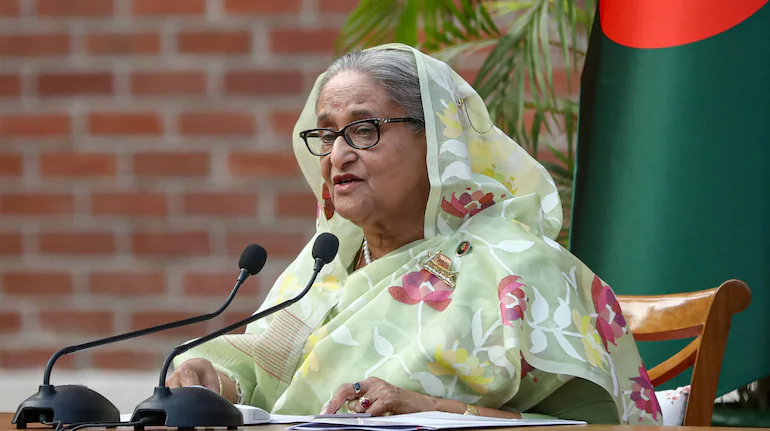Shristy kamal, Pune
After weeks of protests for job quota reforms in Bangladesh, Prime Minister Sheikh Hasina resigned and fled the country. Waker-uz-Zaman, the army chief of Bangladesh confirmed the news at a press conference. He announced that the country’s economy had suffered greatly due to the violent protests and that an interim government would be established to govern the nation.
Along with her younger sister Sheikh Rehana, she left Bangabhaban at around 2:30 pm on Monday via military helicopter. According to sources, she has entered Indian airspace and is currently over Hazaribagh. After it was denied permission in Kolkata, it will land in Delhi at 5 p.m. Meanwhile, India has stopped operating any trains to or from Bangladesh. A high alert has been issued for all units along the 4096 km India-Bangladesh border by the Border Security Force (BSF) of India.
Hasina resigned and fled Dhaka with her sister to seek safety in India due to the unrest which has resulted in almost 300 casualties. Student organizations protesting reserved quotas in government jobs set off a wave of violence last month that resulted in thousands of injuries and at least 150 deaths. The group leading the most recent protests was Students Against Discrimination which spearheaded the job quota demonstrations last month. After the Supreme Court struck down the majority of quotas on July 21, the demonstrations to change the system came to a halt. But last week, demonstrators returned calling for Hasina to issue a public apology for the violence, the restoration of internet access, the reopening of college and university campuses and the release of those who had been detained.
As protesters called for justice for those killed last month, the demonstrations over the weekend turned into a campaign demanding Hasina’s resignation. The student organization demanded that Hasina step down as part of a one-point national non-cooperation movement. Protesters hold Hasina’s government accountable for the violence that transpired during the July protests. A charge that the government of Hasina disputes is that it has been using excessive force against protestors as reported by critics and human rights organizations. The main opposition Bangladesh Nationalist Party (BNP) and the Islamic organization Jamaat-e-Islami were held accountable for the clashes and arson during the quota protests.
